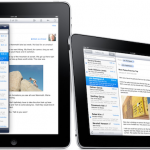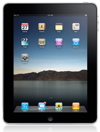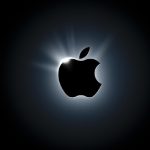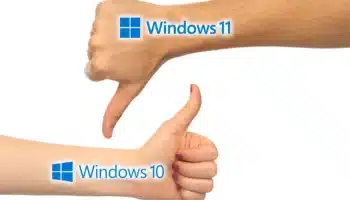Verizon claims 5-12 Mbps 4G LTE service in 25+ markets, but where's the hardware?

Still racing for an LTE launch in the second half of this year, Verizon Wireless has been testing its trial 4G Long Term Evolution (LTE) networks in Boston and Seattle since last August.
Today the wireless network operator says it will be able to deliver speeds between 5-12 Mbps downlink and 2-5 Mbps uplink at launch.
WiMAX radios aren't the business for Cisco any more

In late 2007, Cisco Systems Inc. acquired a WiMAX company called Navini Networks, consuming the smaller competitor's 70 commercial WiMAX deployments, all of the network hardware, and its portfolio of Radio Access Network (RAN) patents. Though Cisco was never exactly hot on WiMAX as a wireless standard, the company saw that the 4G standard was maturing, and made its move into the WiMAX base station business.
At the time, Cisco senior vice president Tony Bates said, "Recently, the WiMAX radio systems to deliver broadband wireless have matured, customers are deploying live networks, and overall investment and demand has increased. Therefore, Cisco views this as the proper time to add licensed WiMAX products to our broadband wireless offer."
Who should buy the iPad? Hint: People of a certain age (and that's not you)

"Who will buy?" is the question to ask now that Apple has turned on the advertising spigot. I saw the first iPad commercial three times during yesterday's Academy Awards program. No one should underestimate the power of Apple marketing for generating millions of initial iPad sales. Advertising will differentiate iPad from ebook reader or tablet competitors.
For years, Apple advertised iPod unchecked. Competitors simply didn't aggressively advertise their MP3 players. So from about 2002 through end of 2004, iPod owned media player advertising -- at least in the United States. For a short time, Creative had a campaign, then nothing after 2005. No wonder so many people bought an iPod -- it seemingly was the only choice.
Cablevision and local station battle could signify coming cable rate hike

The dispute between Cablevision, the United States' fifth largest cable company, and New York ABC affiliate WABC-7 was tentatively resolved yesterday evening in time for the Academy Awards telecast, and the ABC blackout for Cablevision subscribers did not last 24 hours.
"ABC7 and Cablevision have made significant progress and have reached an agreement in principle that recognizes the fair value of ABC7, with deal points that we expect to finalize with Cablevision. Given this movement, we're pleased to announce that ABC7 will return to Cablevision households while we work to complete our negotiations," a statement from WABC-TV said yesterday.
China denies it's in any talks with Google, wonders why

After a Reuters report on Friday cited China's Industry and Information Minister, Li Yizhong, as having told an indeterminate parliamentary body that the government was in talks with Google over its claims of having been hacked in early February by a Chinese malicious source, a vice minister for the same government agency issued a statement through China's Xinhua news agency denying any negotiations have taken place at all.
The denial was covered by Reuters as a request by the ministry for more information, so that China could prosecute Google's complaint. The Xinhua report itself (not a Google English-language translation of the report) states the Ministry of Industry and Information Technology's position that Google never filed a complaint in the first place.
Suddenly Apple hates Wi-Fi

Because removing porn from the App Store wasn't enough, now Apple's taking aim at software that helps iPhone, iPod touch and, soon, iPad users find Wi-Fi hotspots. Forgive me for cynically choosing to disbelieve the company's excuse -- that all of these apps use undocumented or private APIs and consequently must be removed for the sake of the platform's future. If Apple actually had a workable, believable strategy for approval, it wouldn't have approved any of these apps in the first place.
The apps are -- or, rather, were distributed under the trade names Sekai Camera, Wifi-Where, and yFy, among others; and they made it easier for owners of such devices to find Wi-Fi networks and thus avoid using their more costly and often congested 3G connections. In the bad old days of wardriving, we simply walked or drove along a public thoroughfare and constantly refreshed our network lists to identify convenient and often free hotspots. The process was manual and tedious, and these packages automated the process of discovery just in time for Wi-Fi to become table stakes on handheld devices. With more end users than ever before seeking safe havens to avoid busting their carrier-imposed 3G data caps, Wi-Fi finders, scanners, and stumblers had finally hit the big time.
Cablevision loses New York ABC affiliate for refusing to pay hiked fees

Today, New York's ABC affiliate WABC-7 has pulled its programming from Cablevision, just hours in advance of the 82nd Academy Awards show.
It was no surprise, though. Earlier this month, WABC said it would be pulling its programming from Cablevision if the cable company didn't increase its payments by 20%. Cablevision did not see this as fair, as network television has always been available free over the air and nothing new had been added to warrant the increased cost.
'Hero' goes down: Microsoft cutbacks spell the end of Essential Business Server

Two years ago, during a private premiere event entitled "Heroes Happen Here" held at the same Nokia Theater in Los Angeles where the Emmy Awards are now staged, and introduced by none other than Tom Brokaw, Microsoft rolled out a truckload of new server software product lines to help cement the company's new prominence in businesses and enterprises. One of the "heroes" that day, as Microsoft phrased it, was Essential Business Server, an effort to market a ready-from-the-get-go three- or four-server database and mail management package for businesses that have a few dozen employees, but may not yet be enterprises.
It was a solid idea. But today it was left to EBS' own product managers to announce on their team blog this morning that Microsoft has made a decision to cancel the product. The excuse they gave was especially disheartening, as it essentially caved in to the arguments naysayers used against EBS' viability from the beginning.
Samsung previews Blu-ray notebooks, new netbooks, demos all-in-one PC

In New York City last night, Samsung gave a sneak peek at three new laptops that are headed to Best Buy for later this week, and also showed a prototype of an all-in-one PC that might or might not turn into a product.
Set to be sold through Best Buy starting this weekend, Samsung's new "Red" laptops include the 14" R480, 15" R580, and 17" R780. The R480, priced at $729.99, and R580, priced at $829.99, will be sold in Best Buy stores, while the R780 will be available only through BestBuy.com.
So, iPad will change the PC industry? Yeah, right

It's fraking Friday and to celebrate Gartner analysts are predicting Apple's iPad is going to change everything you know about the PC market. Everything. Betanews readers, will you let such prognostications go unanswered?
"Apple's iPad is just one of many new devices coming to market that will change the entire PC ecosystem and overlap it with the mobile phone industry," Ranjit Atwal, Principal Gartner analyst, said in a statement. "This will create significantly more opportunities for PC vendors as well as significantly more threats." Threats to whom or to what? The traditional PC.
Apple iPad and first iPad-specific app hit stores on April 3

Apple's iPad, which was unveiled at the end of January, will be available in US retail on Saturday April 3, the company announced today; and pre-orders will begin on March 12.
The first iPads available will not be equipped with 3G radios, and will be Wi-Fi only, these models go for $499 for 16 GB, $599 for 32 GB, $699 for 64 GB. The AT&T 3G-enabled models will be available in late April for $629 for 16 GB, $729 for 32 GB and $829 for 64 GB. At that time, the device will also launch internationally in Australia, Canada, France, Germany, Italy, Japan, Spain, Switzerland, and the UK. More countries are expected to follow later this year.An important part of this launch will be the availability of iBooks, the first app designed specifically for iPad (and a recycled Apple trademark) The free application turns the iPad into an eBook reader, and comes with the built-in Apple iBookstore, which is an obvious competitor to Amazon's Kindle Store and Barnes & Noble's eBookstore.
Android gets its first Microsoft app: TagReader

Barcode and QR code reader applications are now standard fare for smartphones and can be commonly found for free in any of the major app stores. But far less common are comprehensive services that let users make their own QR codes for free.
This is why Microsoft's TagReader, which was released in the Android Market today, is worth checking out. It's similar to any number of barcode scanners available on the Android platform, except that it is designed to read Microsoft's unique "Tags."
Is Apple afraid of Google?

After reading through the avalanche of reactions to Apple's wide-ranging lawsuit filed Monday against handheld vendor HTC, I'm beginning to think that Apple may very well fear the rise of Google. And an indirect legal assault on the eminent provider of Android-powered devices is easier, cheaper, and less risky than a direct attack on Google itself.
What has Apple to lose?
Did a Microsoft VP really suggest an Internet tax for cybersecurity?

In a keynote speech to the RSA security convention in San Francisco on Tuesday, Microsoft Corporate Vice President for Trustworthy Computing Scott Charney, spoke to the issue of whether a global organization on the order of the World Health Organization or the Centers for Disease Control -- a public/private cooperative -- should be established to help secure the Internet and its billions of users worldwide. During that speech, Charney tossed out a number of ideas as to how such an organization could conceivably be funded.
A transcript of Charney's comments verified by Microsoft for Betanews this afternoon indicates that he suggested such an organization could conceivably be charged with the task of empowering government regulators in member countries to impose restrictions on the behaviors of enterprises and Internet users whose policies endanger global Internet users at large.
The road back to par: Radical reconstructive surgery planned for Firefox 4.0

In the early 2000s, Web browsers were considered by software architects to be launching platforms for other types of program interpreters, such as Java and .NET. The HTML in the Web page simply got the code going, and the network of pages a business would use to launch Web apps was considered the "intranet." But as browsers have matured (rapidly in recent months), they have become the interpreter for Web applications -- not a launching point for Java, but a proving ground for a highly evolved JavaScript.
Mozilla not only saw this trend coming, but frankly drove this trend in this direction some years ago, with the move to add just-in-time (JIT) compilation to its Firefox JavaScript interpreter. The JavaScript engine Mozilla introduced in version 3.5, dubbed TraceMonkey, borrows a concept from these language frameworks by tracing the direction of JS instructions ahead of time, catabolizing those instructions into loops, and generating a kind of intermediate code that can be very simply recompiled into machine code (assembly) at run time.
BetaNews, your source for breaking tech news, reviews, and in-depth reporting since 1998.
Regional iGaming Content
© 1998-2025 BetaNews, Inc. All Rights Reserved. About Us - Privacy Policy - Cookie Policy - Sitemap.




